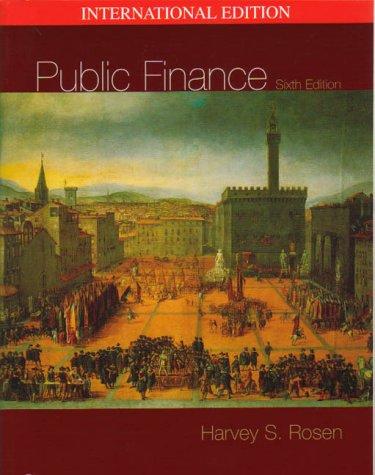Answered step by step
Verified Expert Solution
Question
1 Approved Answer
For eleven years, Sanford Weill served as the chief executive officer (CEO) of Shearson Loeb Rhodes and several of its predecessor entities (collectively Shearson) after
For eleven years, Sanford Weill served as the chief executive officer (CEO) of Shearson Loeb Rhodes and several of its predecessor entities (collectively "Shearson") after which Weill sold his controlling interest in Shearson to the American Express Co. After the sale he served as president of that firm for four years. After his tenure at American Express, Weill developed an interest in becoming CEO for Bank-America and secured a commitment from Shearson to invest $1 billion in BankAmerica if he was successful in his negotiations with that firm. Weill met with BankAmerica directors several times, but these contacts were not disclosed publicly until a month later, when BankAmerica announced that Weill had sought to become its CEO but that BankAmerica was not interested in his offer. The day after the announcement, BankAmerica stock traded at prices higher than the prices at which it had traded during the five weeks preceding the announcement. Weill had discussed his efforts to become CEO of BankAmerica with his wife, who had discussed the information with her psychiatrist, Dr. Willis, prior to BankAmerica's public announcement. She had also told Dr. Willis about Shearson's decision to invest in BankAmerica if Weill succeeded in becoming its CEO. Willis disclosed to his broker this material, confidential information and purchased BankAmerica common stock. After BankAmerica's public announcement and the subsequent increase in the price of its stock, Willis sold his shares and realized a profit of approximately $27,500.00. The court held that Willis was liable for insider trading under the misappropriation theory. The court stated in its opinion in this case that "[i]t is difficult to imagine a relationship that requires a higher degree of trust and confidence than the traditional relationship of physician and patient." It then quoted the concluding words of the Hippocratic oath: Whatsoever things I see or hear concerning the life of men, in my attendance on the sick or even apart therefrom, which ought not to be noised abroad, I will keep silence thereon, counting such things to be as sacred secrets." The court held that Willis had violated his fiduciary duty to Mrs. Weill, his patient, by investing in BankAmerica stock. Do you agree that Willis's' private investments, which were based on information learned through his sessions with Mrs. Weill, constituted a violation of his duty to his patient? After all, Willis had not "noised abroad" Mrs. Weill's secrets- that is, he had not told others about the information. If you had been in Willis's shoes would you had felt ethically restrained from trading on the information? Can you think of any ways in which Willis's trading could have been harmful to Mrs. Weill's interests? Does your answer to this question have a bearing on how you answered Question 1? Do you think the misappropriation theory of liability imposes too great a burden on outsiders, such as Willis? Why or why not? How might you justify, from an ethical point of view, the application of the misappropriation theory to "outsider trading
Step by Step Solution
There are 3 Steps involved in it
Step: 1

Get Instant Access to Expert-Tailored Solutions
See step-by-step solutions with expert insights and AI powered tools for academic success
Step: 2

Step: 3

Ace Your Homework with AI
Get the answers you need in no time with our AI-driven, step-by-step assistance
Get Started


